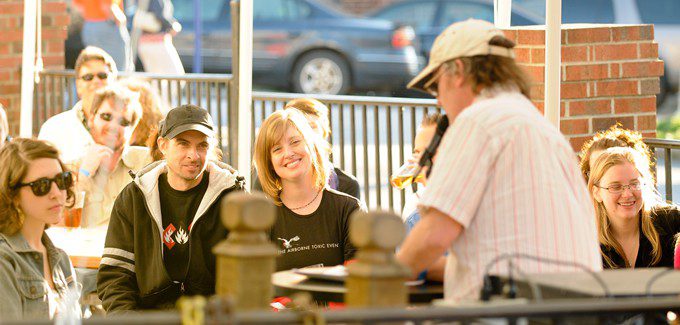Clemson University will host its ninth annual Literary Festival featuring world-renowned authors such as the revered Pulitzer Prize Winner and former Poet Laureate to the United States, Charles Simic. The festival aims to promote and celebrate the art and craft of writing. South Carolina Humanities supported this project with a Fast Track Literary Grant in November 2015.
The Clemson Literary Festival will take place at several venues in and around their campus (Calhoun Drive, Clemson, SC) on April 6-8, 2016. All events are free and open to the public. A detailed schedule of readings and workshops can be found here.
“The Ninth Clemson Literary Festival is going to be one of our very best,” says co-director of this year’s event, Nic Brown. “Once again, we’re bringing some of the nation’s most celebrated authors to Clemson for three days of readings and panels, free and open for all. This year’s headliner, Charles Simic, is not only a Pulitzer Prize winner, but also the fifteenth US Poet Laureate. It doesn’t get much better than that. We’re also excited to kick off the festival on Wednesday, April 6, with a reading by members of The Watering Hole, an online community for writers of color.”
Since its inception in 2008, the Clemson Literary Festival has brought more than 100 writers to Clemson for literary events, including five Pulitzer Prize winners. The student-organized festival brings together students, faculty and community residents in a mutual appreciation of the arts.
For more information about the Clemson Literary Festival, visit their website at: http://www.clemson.edu/caah/conferences/literary-festival/index.html or call Madison Johnson at (910) 740-4899.
The mission of South Carolina Humanities is to enrich the cultural and intellectual lives of all South Carolinians. Established in 1973, this 501(c) 3 organization is governed by a volunteer 22-member Board of Directors comprised of community leaders from throughout the state. It presents and/or supports literary initiatives, lectures, exhibits, festivals, publications, oral history projects, videos and other humanities-based experiences that directly or indirectly reach more than 250,000 citizens annually.
Image Courtesy of Clemson Literary Festival
